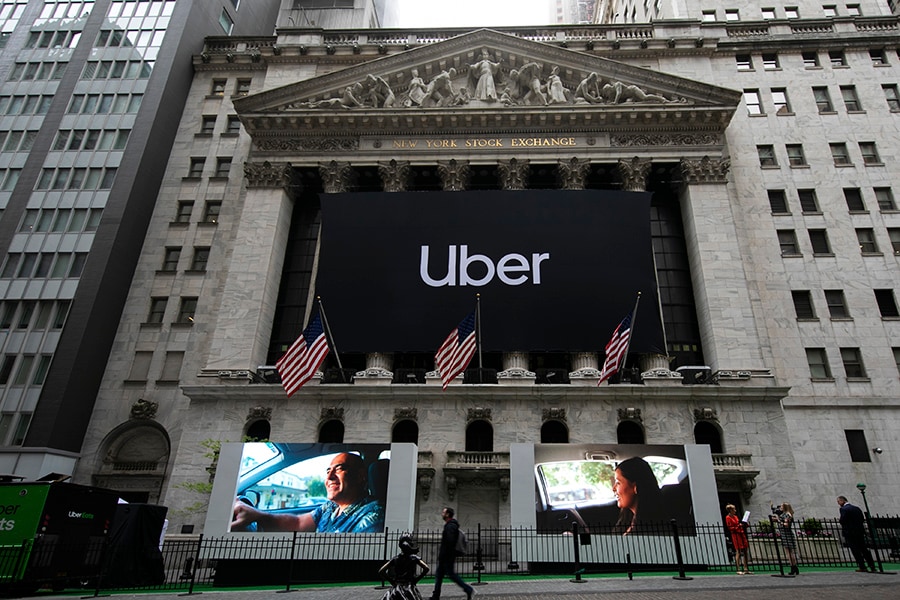
How the promise of a $120 billion Uber IPO evaporated
Wall Street's biggest banks, Morgan Stanley and Goldman Sachs, calculated Uber's valuation at $120 billion; nine months later, the ride-hailing company is worth about half that much
 Uber signage outside of the New York Stock Market in Manhattan, May 10, 2019. Uber’s offering was supposed to be a crowning moment for the ride-hailing company. But it suffered setback after setback and ultimately resulted in pointed questions for all involved.
Uber signage outside of the New York Stock Market in Manhattan, May 10, 2019. Uber’s offering was supposed to be a crowning moment for the ride-hailing company. But it suffered setback after setback and ultimately resulted in pointed questions for all involved.Image: Jeenah Moon/The New York Times
Last September, Uber’s top executives were pitched by some of Wall Street’s biggest banks, Morgan Stanley and Goldman Sachs.
The bankers’ presentations calculated Uber’s valuation almost identically, hovering around one particular number: $120 billion.
That was the figure the bankers said they could convince investors Uber was worth when it listed its shares on the stock market, according to three people with knowledge of the talks. Uber’s chief executive, Dara Khosrowshahi, and chief financial officer, Nelson Chai, listened and discussed the presentations, these people said. Then they hired Morgan Stanley and Goldman Sachs to take the company public — and to effectively make the $120 billion valuation a reality.
Nine months later, Uber is worth about half that figure. The ride-hailing firm went public last week at $45 a share and has since dropped to around $41, pegging Uber’s market capitalization at $69 billion — and officially crowning it as the stock market debut that lost more in dollar terms than any other American initial public offering since 1975.
How Uber’s offering turned into what some are now openly calling a “train wreck” began with the $120 billion number that the bankers floated. The figure leaked last year, whipping up a frenzy over how Uber could soon become the biggest American company to list on an American stock exchange — larger even than Facebook, which went public in 2012 at a whopping $104 billion valuation.
But for Khosrowshahi and Chai, the $120 billion number turned Uber’s IPO process into an exercise in managing expectations. Some large investors who already owned Uber shares at cheaper prices pushed back against buying more of the stock at such a lofty number, said people familiar with the matter. Their appetite for Uber was dampened further by the company’s deep losses and slowing growth in regions like Latin America. And Uber had to contend with unforeseen factors, including fraying trade talks with China that spooked the stock market in the same week that the company decided to go public.
©2019 New York Times News Service







